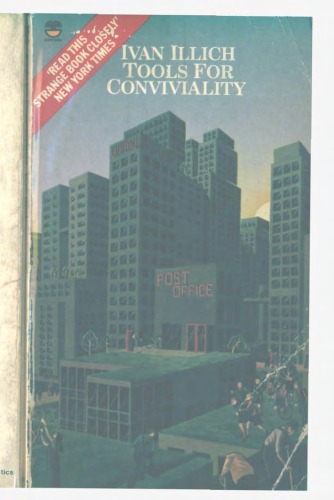David Golumbia: The Cultural Logic of Computation (2009)
Filed under book | Tags: · cognition, cognitive science, computationalism, computing, critique, critique of technology, language, linguistics, neoliberalism, philosophy of technology, semantic web

Advocates of computers make sweeping claims for their inherently transformative power: new and different from previous technologies, they are sure to resolve many of our existing social problems, and perhaps even to cause a positive political revolution.
In The Cultural Logic of Computation, David Golumbia, who worked as a software designer for more than ten years, confronts this orthodoxy, arguing instead that computers are cultural “all the way down”—that there is no part of the apparent technological transformation that is not shaped by historical and cultural processes, or that escapes existing cultural politics. From the perspective of transnational corporations and governments, computers benefit existing power much more fully than they provide means to distribute or contest it. Despite this, our thinking about computers has developed into a nearly invisible ideology Golumbia dubs “computationalism”—an ideology that informs our thinking not just about computers, but about economic and social trends as sweeping as globalization.
Driven by a programmer’s knowledge of computers as well as by a deep engagement with contemporary literary and cultural studies and poststructuralist theory, The Cultural Logic of Computation provides a needed corrective to the uncritical enthusiasm for computers common today in many parts of our culture.
Publisher Harvard University Press, 2009
ISBN 0674032926, 9780674032927
Length 257 pages
review (Marilyn Lombardi)
review (Rob Horning)
PDF (DJVU)
Comment (0)Ivan Illich: Tools for Conviviality (1973–) [EN, DE]
Filed under book | Tags: · critique of technology, economy, industrial society, industry, politics, society, technology

“Ivan Illich has aroused worldwide attention as a formidable critic of some of society’s most cherished institutions – organized religion, the medical profession, compulsory education for all.
In Tools for Conviviality he carries further his profound questioning of modern industrial society by showing how mass-production technologies are turning people into the accessories of bureaucracies and machines.
Tools for Conviviality was published only two years after Deschooling Society. In this new work Illich generalized the themes that he had previously applied to the field of education: the institutionalization of specialized knowledge, the dominant role of technocratic elites in industrial society, and the need to develop new instruments for the reconquest of practical knowledge by the average citizen. Illich proposed that we should ‘invert the present deep structure of tools’ in order to ‘give people tools that guarantee their right to work with independent efficiency.'”
Publisher Harper & Row, New York, 1973
World Perspective series
SBN 060121386
xxv+110 pages
Reviews: Michael G. Michaelson (New York Times Book Review, 1973), John L. Elias (CrossCurrents, 1974), John Touhey (World Affairs, 1974), Romesh Diwan (Economic & Political Weekly, 1975), Galye Avant (American Political Science Review, 1975).
Tools for Conviviality (English, 1973, 4 MB, added on 2019-10-1; HTML)
Tools for Conviviality (English, 1975, 2 MB, updated on 2019-10-1)
Selbstbegrenzung. Eine politische Kritik der Technik (German, trans. Ylva Eriksson-Kuchenbuch, 1975/1998, added on 2019-10-1)
Langdon Winner: The Whale and the Reactor: A Search for Limits in an Age of High Technology (1986)
Filed under book | Tags: · critique of technology, deep ecology, ecology, environment, genetics, history of technology, philosophy of technology, technē, technology

“This collection of ten essays explores the social, political, and philosophical ramifications of the information technologies. While Winner looks at computer networking, nuclear reactors, genetic engineering, the so-called appropriate-technology movement and a variety of other specific issues, his main focus is on the way we think about technology.”
Publisher University of Chicago Press
ISBN 0226902110, 9780226902111
xiv+200 pages
Reviews: Craig Calhoun (Science, 1986), David Dickson (New York Times, 1986), James R. Temples (American Political Science Review, 1987), Stanley R. Carpenter (J Business Ethics, 1987), Slawomir Magala (Organization Studies, 1989), Scott London (1995), Heather Wiltse (2008).
PDF (updated on 2012-7-17)
Comment (0)
